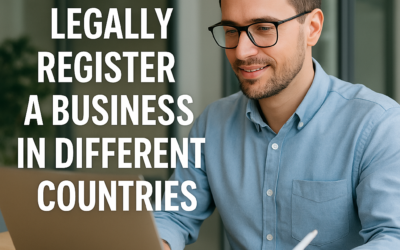Protecting Your Software and Digital Products with Copyrights
The digital landscape demands robust intellectual property protection, especially for software and digital products that drive modern businesses. Copyrights provide a reliable legal shield that helps creators maintain control, ensuring their innovations remain secure and exclusive.
What Are Copyrights?
Copyrights are legal tools that grant creators exclusive rights to reproduce, distribute, and derive new works from their original creations. In the realm of software and digital products, this includes everything from source code and user interfaces to documentation and multimedia content.
Key Features of Copyright Protection
- Exclusive Rights: As a copyright holder, you control how your software is reproduced, distributed, and used to create derivative works.
- Automatic Coverage: Your work is protected the moment it is created; while registration isn’t required, it can offer additional legal advantages.
- Long-Term Security: Copyright protection typically lasts for the life of the author plus 70 years, ensuring lasting control over your work.
Benefits for Small Businesses
For small business owners and digital entrepreneurs, copyrights represent a strategic asset. Here are some of the key advantages:
- Legal Protection: Copyrights provide a clear legal path to address unauthorized use or distribution, safeguarding your business interests.
- Revenue Generation: By licensing your software and digital products, you can open new revenue streams and monetize your innovations effectively.
- Competitive Edge: A solid copyright strategy helps protect unique product features, boosting your market positioning and brand reputation.
Real-World Examples of Copyrights in Action
Understanding how copyrights work in practice can be illuminated by a couple of well-known cases:
Oracle vs. Google
In a landmark dispute, Oracle filed a lawsuit against Google for using Java APIs in the Android operating system. This case underscored the complexities of applying copyright law to software, especially in regard to API usage. Ultimately, the U.S. Supreme Court’s decision in favor of Google highlighted the nuances of fair use in software development.
Microsoft’s Copyright Strategy
Microsoft has consistently used copyrights to protect flagship products like Windows and Office. This robust strategy has helped the tech giant secure its market position and prevent unauthorized software distribution, illustrating the power of strategic copyright enforcement.
Challenges and Considerations
While copyrights provide significant benefits, there are challenges to keep in mind:
- Enforcement Costs: Taking legal action against infringement can be expensive and time-consuming, especially on an international scale.
- Rapid Technological Change: The fast pace of technological advancements often outstrips current legal frameworks, necessitating continual updates and adaptations.
- Open-Source Dynamics: The collaborative nature of open-source software introduces unique challenges for copyright enforcement and protection.
Looking Ahead: The Future of Copyrights in Digital Business
Copyrights continue to play a pivotal role in safeguarding software and digital products. By understanding both the benefits and limitations of copyright law, small businesses can effectively protect their intellectual property and maximize the return on their innovations.
In a constantly evolving digital marketplace, staying informed and proactive about copyright protection is essential. Leveraging copyrights not only shields your digital assets but also positions your business for long-term success and competitive advantage.









